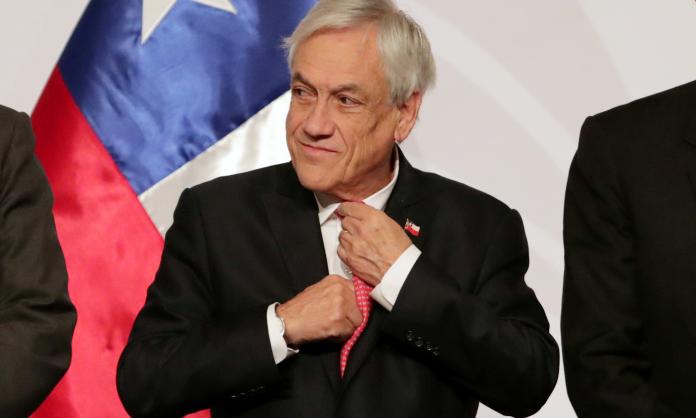RIO DE JANEIRO, BRAZIL – The right-wing landslide in the regional elections held yesterday, Sunday, in Chile, in which it only won one of the 16 governorships in the country, represents a new blow for the Chilean president, Sebastián Piñera, who will have to deal with the last months of his mandate with a strengthened opposition in the regions.
The center-left, which had been losing support for years, especially after its defeat in the 2017 presidential elections, was the big winner of the elections by winning 10 regions, including the Metropolitan region, where the capital, Santiago, is located and where 8 of the country’s 19 million inhabitants live.

“The results have to make the Chilean center-right reflect. The Chilean people’s evaluation of their government is terrible,” said Claudio Orrego, the next metropolitan governor from the historic Christian Democracy (DC).
The ruling Chile Vamos coalition, made up of four parties, only managed to win in La Aracuanía (south). In contrast, the independents won three regional governments and the leftists of the Frente Amplio (FA), two.
This is the first time Chileans elect their regional authorities (until now appointed by the Executive) at the ballot box, which is a historic step towards the country’s decentralization.
EMERGENCY MEETING
To the regional results must be added the defeats suffered by the ruling party in last October’s plebiscite on a new Constitution (where the rejection option, defended by the ruling party, only attracted 20% of the votes) and the constituent elections in May, where the bloc did not obtain the third of the seats necessary to influence the drafting of the new text.
For the first time in almost a year, Piñera summoned today at La Moneda Palace (seat of the Head of State) the so-called “extended political committee”, considered the hardcore of the coalition with which he will govern until March 2022.
Read also: Check out our extensive coverage on Chile
“We have to change things as they have been done, and those who believe that we can continue to maintain the same forms are totally wrong”, assured Andrés Molina, president of Evópoli, one of the parties of Chile Vamos.
“I think we could have worked better on the election of governors,” added the leader of the ultra-conservative UDI, Javier Macaya.
The regional elections are also being read in the presidential key. They have marked the starting signal in the race to La Moneda (the first round will be on November 21) since the territories could become bastions of the candidates, especially Santiago.
BACK TO COMPULSORY VOTING?
The meager turnout has opened the debate on the return to compulsory voting, repealed in 2012. Since then, no election had exceeded 50% turnout, except last October’s plebiscite, when 50.9% voted.
Only 2.5 of the 13 million people called to vote on Sunday, an election held at the height of the covid-19 pandemic and with the entire capital confined.
This is the lowest turnout since the return to democracy in 1990, well below the minimum recorded in the 2016 municipal elections, when only 34.9% of the roll voted.
“The communes with the highest participation are the same as always. The problem continues to be the capacity to encourage suffrage in those of lower socioeconomic level,” explained Federica Sanchez Staniak, a political scientist at the Alberto Hurtado University.
In the Metropolitan Region, she added, “abstention was what decided the result”, being the peripheral commune of San Pedro the one that registered the worst figure (14.4%).
The wealthy neighborhoods of the eastern part of the capital were, on the other hand, the ones that registered the highest turnout, with Vitacura at the top (52.8%).
“There is a severe problem of legitimacy of the political system, which is going to affect any government that takes office in the next years and which draws a not very optimistic scenario for the constituent process, which has an exit plebiscite”, warned Octavio Avendaño, academic of the Faculty of Social Sciences of the University of Chile.

